PlanktoSpace
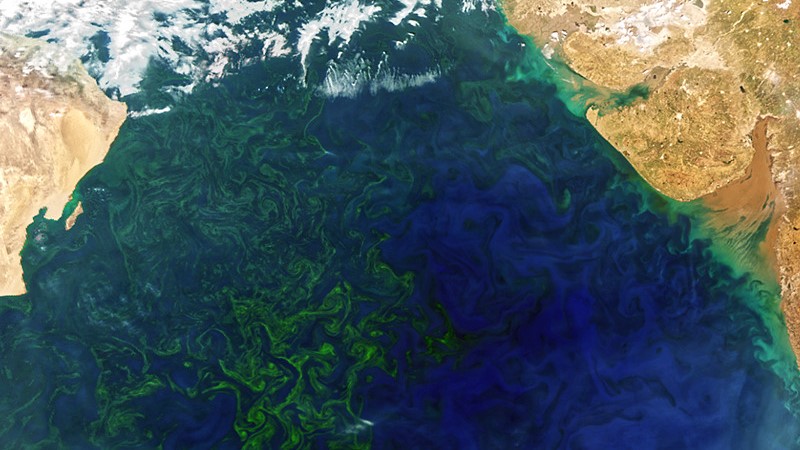
Bloom of sparkling Noctiluca in the Arabian Sea (17 February 2025)
PlanktoSpace is a program for collecting plankton samples using recreational sailing boats, funded by NASA (National Aeronautics and Space Administration) and ESA (European Space Agency). Its goal is ambitious: to deploy tools on board citizen vessels in order to identify a link between plankton biodiversity and satellite observations of the ocean.
The idea is to correlate the plankton composition of surface waters with the color of the ocean as seen from above, measured by satellite. If this approach succeeds, it will make it possible to monitor plankton biodiversity from space, paving the way for a true global system for tracking the health of the oceans.

Satellite measurements of the ocean
The first attempts to link existing plankton genetic data with hyperspectral measurements of ocean color are promising, but they are limited by the scarcity of data synchronized with satellite overpasses.
To ensure that samples match satellite measurements, they must be taken offshore, under clear skies, and around local noon. In PlanktoSpace, we mainly work with:
- PACE (Plankton, Aerosol, Cloud, Ocean Ecosystem), a U.S. satellite launched in 2024,
- Sentinel-2 and Sentinel-3, European satellites,
- data from the OC-CCI program (Ocean Colour Climate Change Initiative).
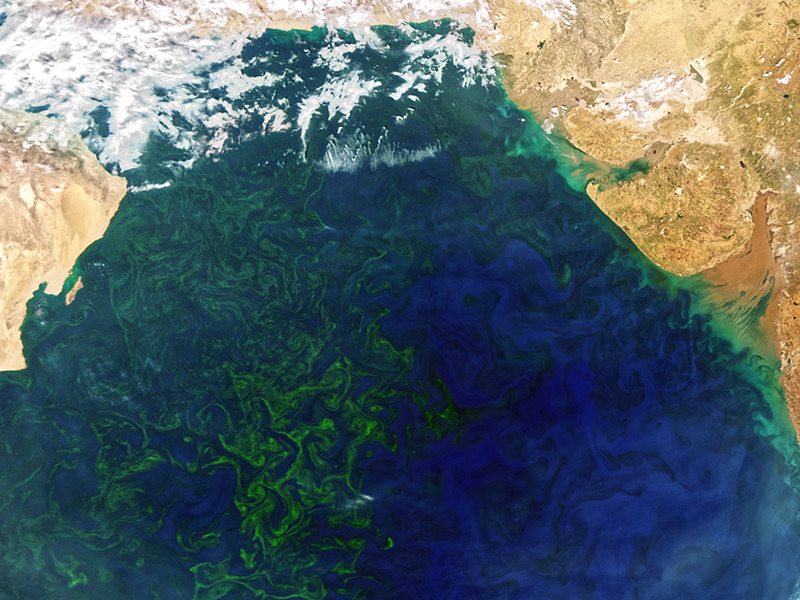
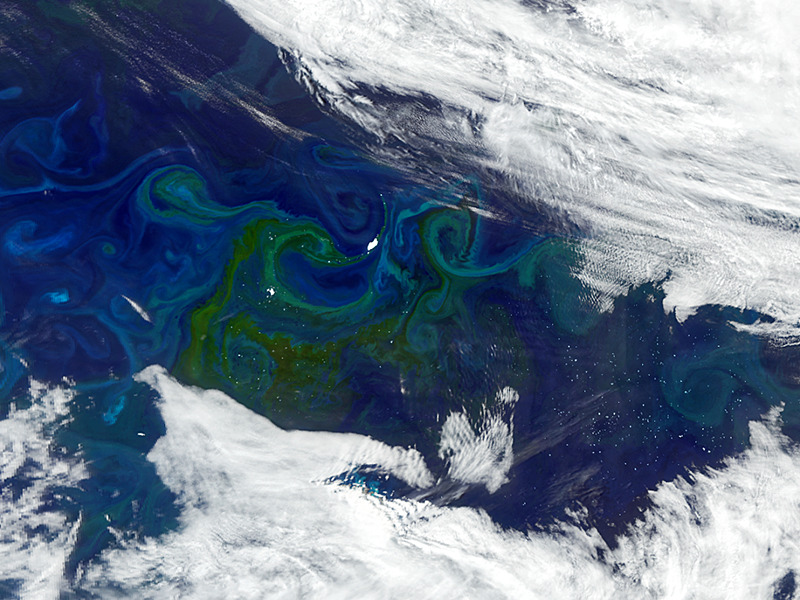
Photos taken by the PACE satellite
A network of volunteer citizens
From September 2025 to September 2027, Plankton Planet will oversee a fleet of about twenty sailing boats, distributed across the world’s oceans, with the goal of sampling plankton during satellite overpasses.
The deployed protocol lasts around three hours and allows the collection of surface plankton ranging from 0.2 to 2000 µm, in the form of dry biomass genetically analyzed in France (Station Biologique de Roscoff – Sorbonne University). Volunteer crews handle a Curiosity microscope, an HSN plankton net, a Lamprey filtration device, and a bucket (see Tools page). The kit is accompanied by training and documentation on plankton.
This unique dataset will be used to train artificial intelligence algorithms capable of linking satellite signals to marine biodiversity—a project carried out by the Plymouth Marine Laboratory and the Université du Littoral Côte d’Opale.
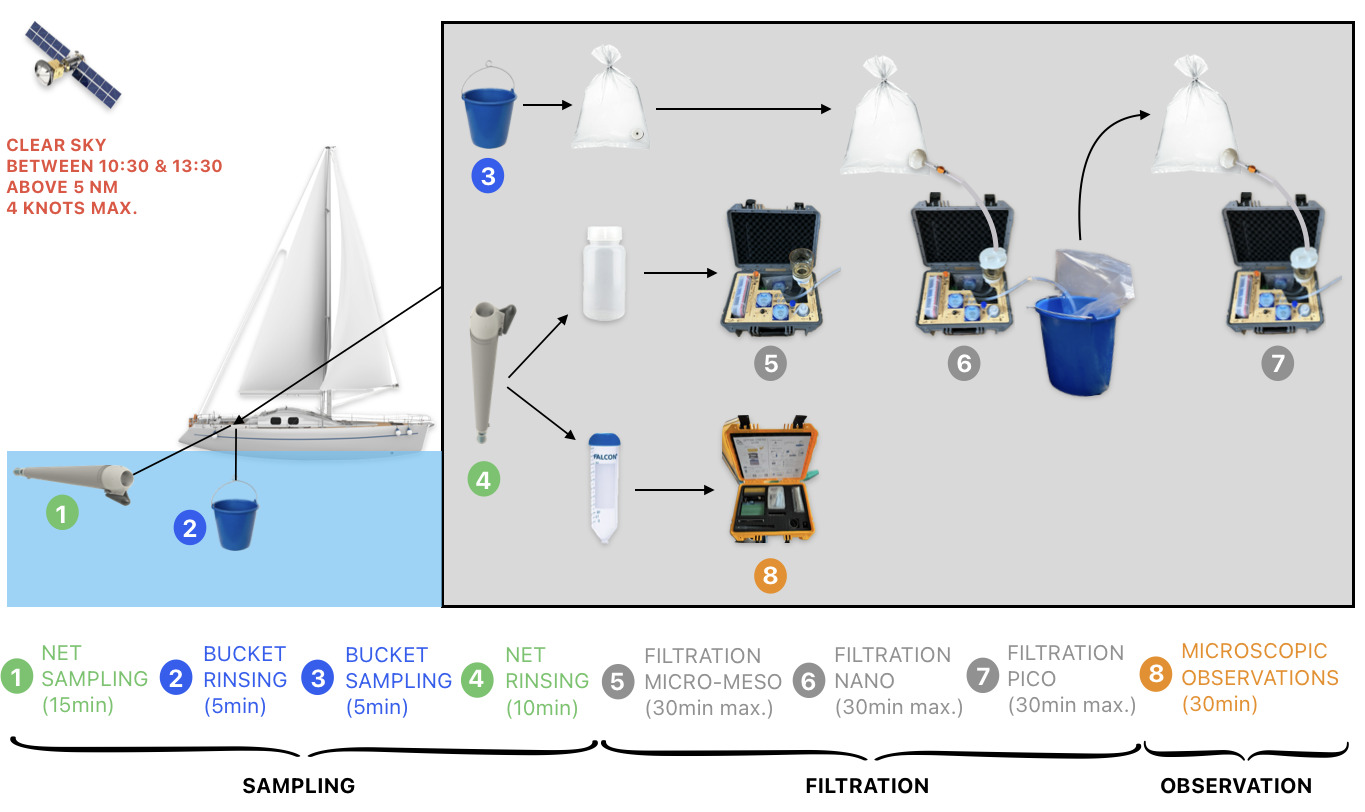
PlanktoSpace Protocol Overview
Would you like to participate in the program?
The program targets long‑distance sailors (minimum 6 months) with a strong interest in research and data collection. Sailing boats are selected to ensure that navigation areas do not overlap between participants.
Please complete this questionnaire to express your interest:
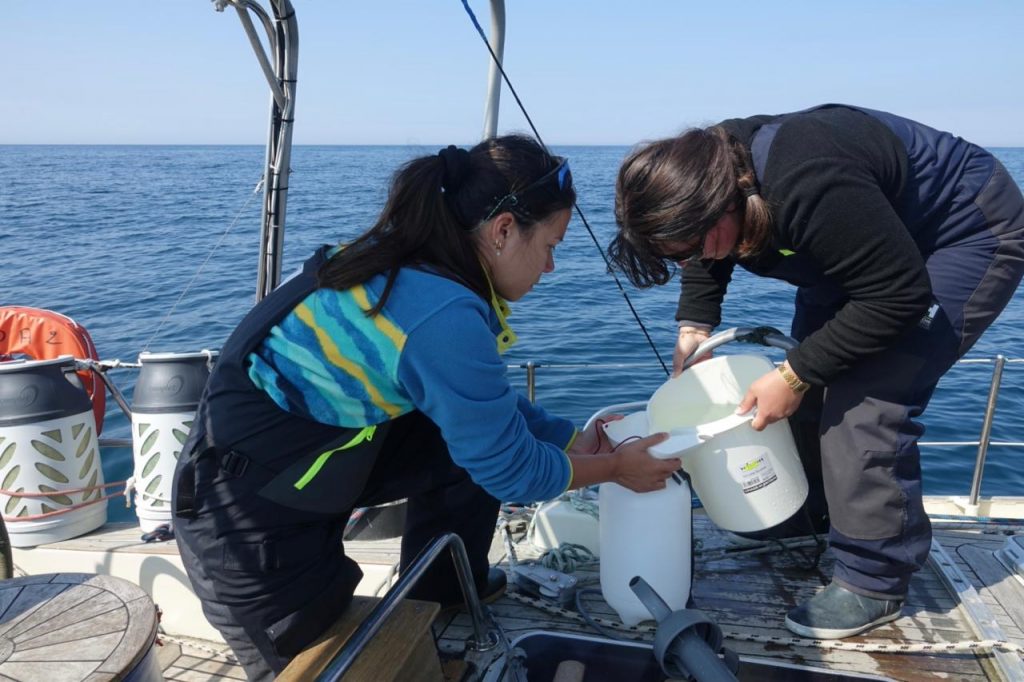
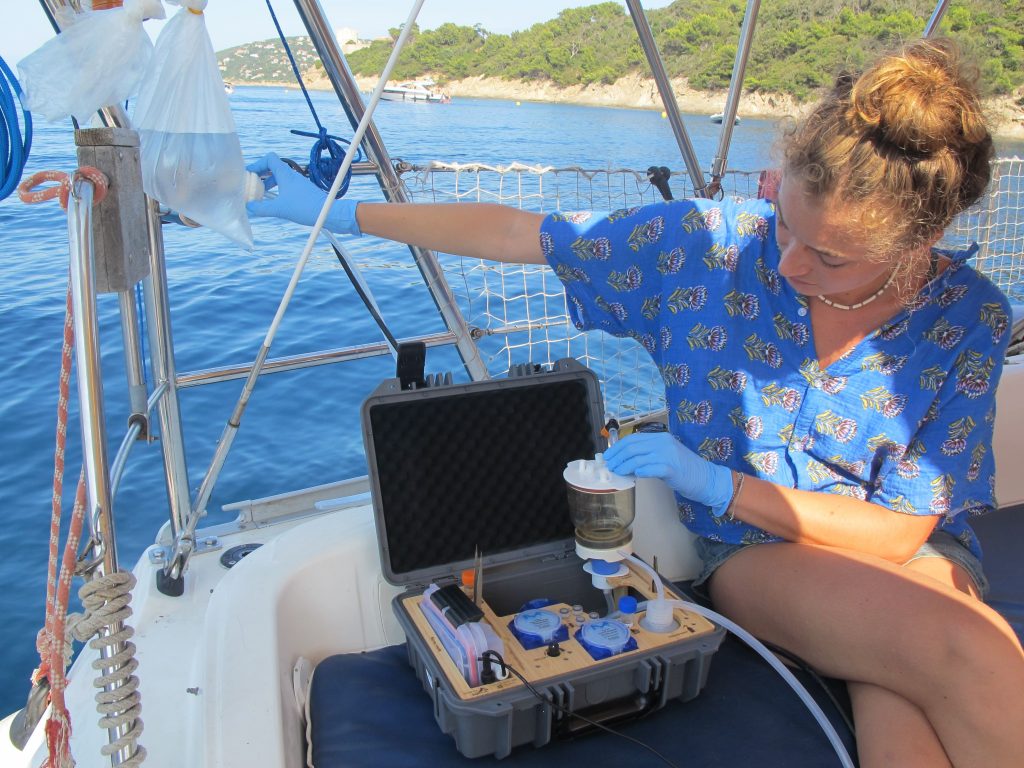
Photos of our various crew members in action
